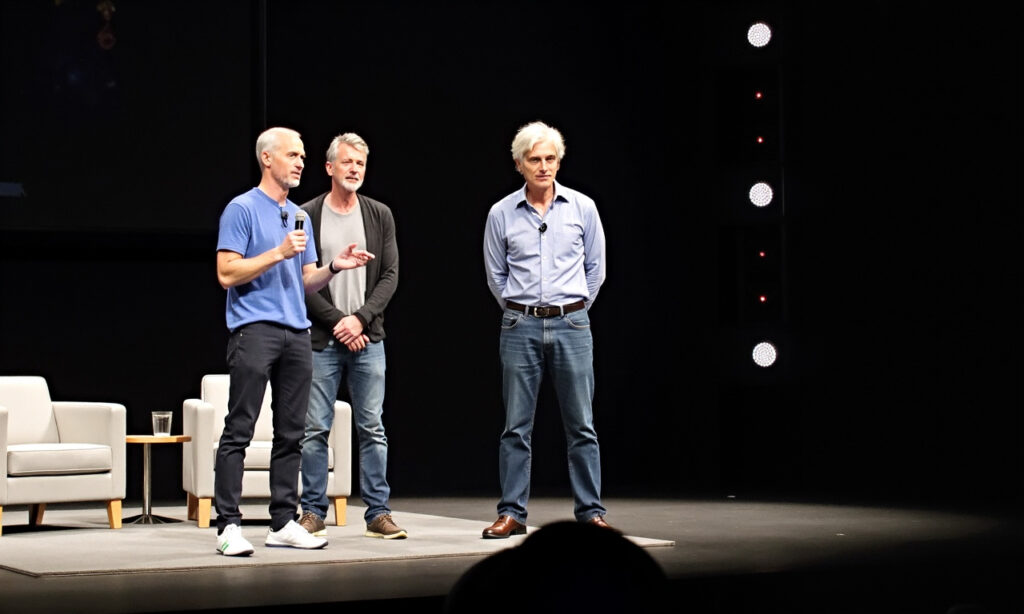The Unexpected Delay in Siri’s AI Upgrades
Apple’s recent admission that the next generation of Siri, infused with advanced AI features, will be delayed has sent shockwaves through the tech community. This delay is particularly noteworthy because it marks a rare instance where Apple, known for its meticulous planning and execution, has publicly acknowledged a significant setback in its product roadmap.
The AI-powered features, initially promised for iOS 18.4 in April 2025, have now been pushed back to at least May 2025 with the release of iOS 18.5. These features include personalized responses, task completion without the need to open associated apps, and on-screen awareness that allows Siri to analyze and respond to information displayed on the screen[1].
Internal Chaos and Leadership Issues
Behind the scenes, Apple’s AI and machine-learning group, dubbed “AIMLess” by internal employees, has been plagued by poor leadership, conflicting strategies, and a relaxed culture that has hindered progress. The team’s indecisiveness, particularly between Apple’s AI lead John Giannandrea and software engineering head Craig Federighi, has been a significant factor. Giannandrea’s cautious approach and insistence on using Apple’s own models, as opposed to third-party models like OpenAI’s GPT, contrasted sharply with Federighi’s more experimental and open approach to integrating external AI technologies[3][4].
The WWDC Demo Debacle
The WWDC 2024 demo of Apple Intelligence, which showcased a futuristic and highly capable Siri, has been revealed as largely fictional. The demonstration, which included features like Siri accessing user emails and plotting routes, was a surprise to the Siri team itself, who had never seen working versions of these capabilities. This break from Apple’s tradition of only demonstrating features that are ready for release has left many questioning the company’s strategy and execution[3][4].
Half-Baked Promises and Public Backlash
By demoing technology that was not fully developed, Apple set itself up for public disappointment. The delay in Siri’s AI upgrades has highlighted the disparity between Apple’s ambitious promises and its current capabilities. Even basic questions, such as “What month is it?” are currently beyond Siri’s grasp, a stark contrast to the seamless interactions promised in the WWDC demo[2].
A New Path Forward with Federighi at the Helm
In a significant shift, Craig Federighi’s team is now taking a more integrated approach to AI, open to using third-party large language models (LLMs) to enhance Siri’s capabilities. This strategy, adopted by many of Apple’s AI competitors, may be the key to getting Apple’s AI efforts back on track. Federighi’s team, known for its ability to deliver functional and innovative features, offers hope that Siri might yet become the intelligent assistant Apple has promised[3][4].
Practical Implications for Users
For users eagerly awaiting the enhanced Siri experience, the delay is frustrating but not without a silver lining. The integration of third-party LLMs could lead to a more robust and responsive Siri, capable of tasks that were previously promised but never delivered. While the wait continues, Apple’s commitment to privacy and security remains steadfast, ensuring that any AI advancements will be balanced with user protection.
Reason for Hope
Despite the current setbacks, there is reason to believe that Apple will turn Siri around. With Federighi and his team at the helm, and the willingness to adapt and use external AI technologies, Apple is poised to make significant strides in the AI space. As we approach the next Apple developer’s conference, there is anticipation that Apple will unveil a clearer plan and timeline for Siri’s evolution, restoring confidence in its ability to deliver cutting-edge AI features.
In the end, Apple’s stumble with Siri serves as a reminder that even the most meticulous companies can face significant challenges in the rapidly evolving AI landscape. However, with the right leadership and a flexible approach, there is every reason to believe that Siri will rise to meet the high expectations of Apple’s loyal user base.
